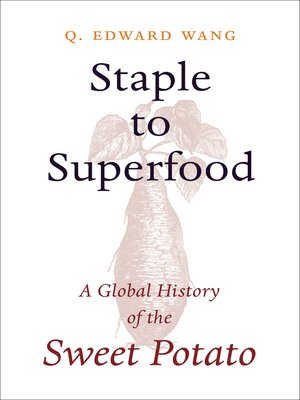Staple to Superfood
ebook ∣ A Global History of the Sweet Potato · Columbia Studies in International and Global History
By Q. Edward Wang

Sign up to save your library
With an OverDrive account, you can save your favorite libraries for at-a-glance information about availability. Find out more about OverDrive accounts.
Find this title in Libby, the library reading app by OverDrive.



Search for a digital library with this title
Title found at these libraries:
| Library Name | Distance |
|---|---|
| Loading... |
Sweet potatoes were among the American crops Christopher Columbus brought back to Europe—where they were thought to be an aphrodisiac. In China, this versatile root became a staple that fueled rapid population growth. Introduced to Japan to stave off famine, sweet potatoes later sustained the country's imperial expansion. Because this hardy plant can thrive in almost any soil, it has long been cultivated as a subsistence crop in Southeast Asia, Africa, and Oceania. In recent years, Western health experts have begun touting the humble sweet potato as a "superfood" with numerous nutritional benefits.
Considering these events and many others, Staple to Superfood explores the sweet potato's rich history and remarkable global influence. Q. Edward Wang demonstrates how this resilient root has not only nourished communities but also defined their identities. Tracing its journeys through the intricate networks of global trade and cultural exchange, he shows how the sweet potato transformed agricultural practices, culinary traditions, and social structures worldwide. From the Americas to Europe to Asia and the Pacific, the spread of this crop illuminates the varied paths that global development has taken. Wang also contrasts the sweet potato with its botanically unrelated namesake, the white potato. Blending agricultural, cultural, and historical perspectives, Staple to Superfood offers a fresh look at the power of food to transform societies. It is a compelling exploration of how the sweet potato shaped the modern world and continues to influence global food systems today.







